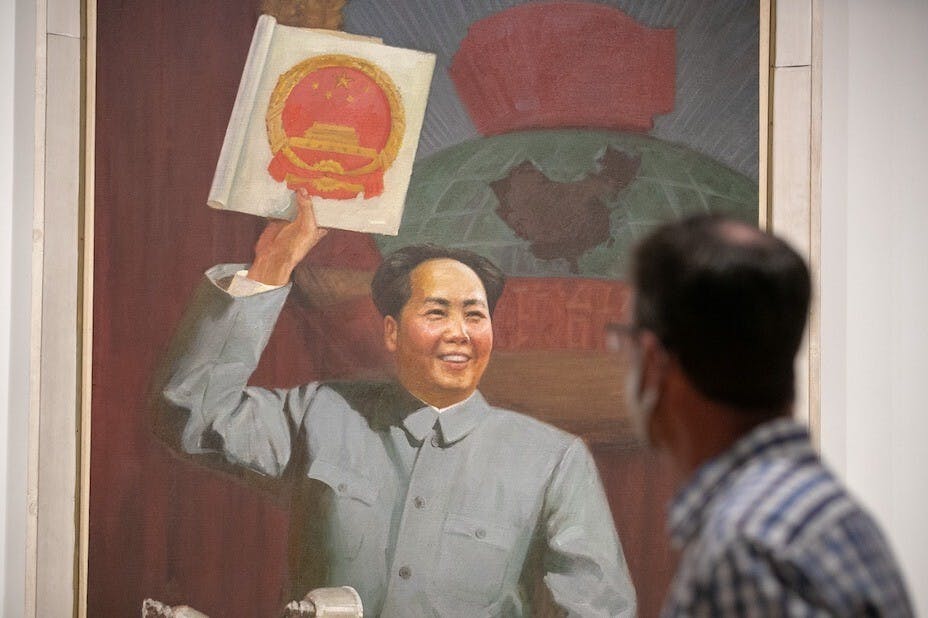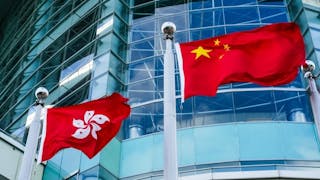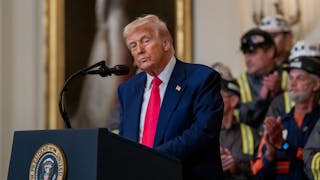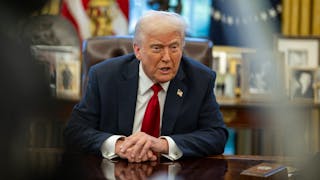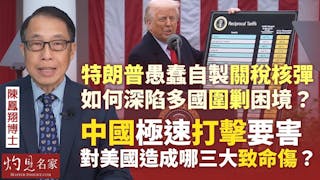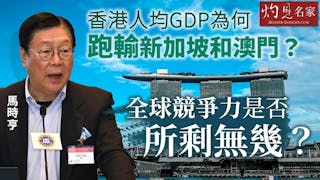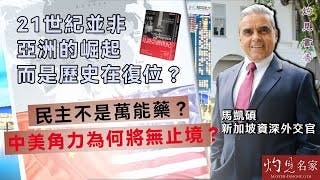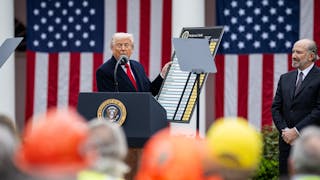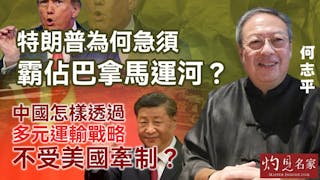11月8日至10日,中共十九屆六中全會在北京通過的第三份歷史決議(《中共中央關於黨的百年奮鬥重大成就和歷史經驗的決議》,以下簡稱《決議》), 對香港和澳門具有重大政治意義。 在中共通過的三份歷史決議中,這份首次明確提及港澳,而且特別強調在香港特別行政區促進實踐「一國兩制」行穩致遠。
確立毛鄧等領導人歷史地位
197名中央委員及其151名候補中央委員,中央紀律檢查委員會常務委員會委員和有關方面負責人出席了會議,審議了繼1949年和1981年中共中央委員會「歷史決議」後的第三份重要決議。1945年的「歷史決議」肯定了馬克思主義中國化的必要性,而 1981 年的「歷史決議」則確立了毛澤東和鄧小平在中國歷史上的領導地位和核心地位。
《決議》具有多方面的歷史意義和政治意義。首先,它對中國共產黨的四個歷史時期及其成就進行了詳細的界定。具體來說,第一個時期是新民主主義革命時期,主要任務是「反對帝國主義、封建主義、官僚資本主義,爭取民族獨立、人民解放,為實現中華民族偉大復興創造根本社會條件」。
第二個時期是社會主義革命和建設時期。這時期毛澤東思想是馬克思列寧主義在中國的「創造性運用和發展」。換言之,是馬克思主義中國化的「第一次歷史性飛躍」。
第三個時期是改革開放和社會主義現代化建設時期,鄧小平、江澤民、胡錦濤作為中共領導人「解放和發展社會生產力,使人民擺脫貧困、盡快富裕起來,為實現中華民族偉大復興提供充滿新的活力的體制保證和快速發展的物質條件」。
第四個時期是中國特色社會主義新時代,以習近平「為主要代表的中國共產黨人,堅持把馬克思主義基本原理同中國具體實際相結合」。而且,習近平新時代中國共產黨人,堅持把馬克思主義基本原理同中國具體實際相結合」。
而且,習近平新時代中國特色社會主義思想是「時代精華」,「實現了馬克思主義中國化新的飛躍」,使人民群眾自信、自強和創新。
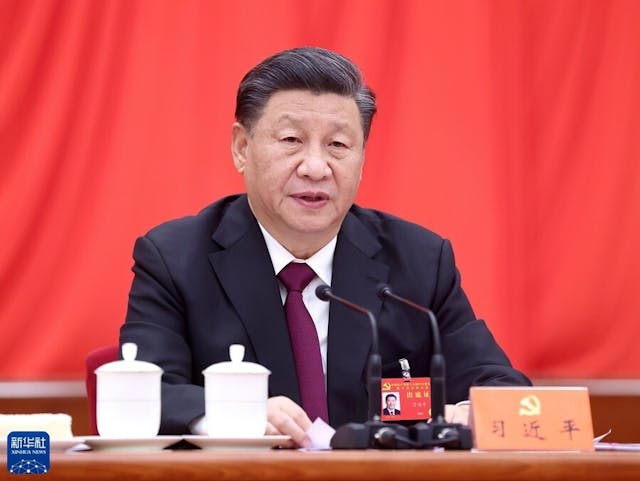
從思想上講,《決議》總結了黨的歷史成就,肯定了毛澤東、鄧小平、江澤民、胡錦濤、習近平等中共主要領導人的歷史定位和政治地位。這份決議的措辭和基調,正是為2022年中共二十大奠定政治基調,屆時中國共產黨將邁向第二個百年奮鬥目標,繼續引領中國走向中華民族的偉大復興。
總之,2021年中共的歷史決議回顧了過去的成就,確立了現任領導人的政治地位,為2022年以後中國共產黨的未來方向和繼續領導中國鋪平了道路。
肯定十八大以來各項成就
《決議》的另一層政治意義是肯定了2012年11月中共十八大以來的十三項成就:一、堅持黨的「全面領導」;二、從嚴治黨;三、中國經濟發展平衡性、協調性增強;四、改革開放進程不斷深化;五、中國特色社會主義制度更加成熟更加定型;六、以法治國能力顯著增強;七、 注重文化思想建設;八、民生和社會治理得到改善;九、生態文明建設力度前所未有;十、國防和軍隊實力提升;十一、全面加強國家安全;十二、堅持「一國兩制」和推進國家統一;十三;推進中國特色「大國外交」。
《決議》再次肯定中國共產黨為中國政治、社會、經濟、文化、軍事、國家安全和外交特方面的巨大成就,為中國的未來發展方向開闢了道路。《決議》可被視為具有里程碑意義的文件,不僅確立了中共及其領導人的政治地位,而且重申了黨的政策方向和成就,特別是中國共產黨在國內事務和中國在國際地位和外交各方面的領導地位。
在外交上,《決議》指出,在全面推進中國「大國外交」的同時,構建「人類命運共同體」仍然是代表中國外交在世界大變局中開創新局、在世界亂局中化危為機,引領時代潮流和人類前進方向的鮮明旗幟。
香港須「由亂轉治」 對台措詞溫和
客觀地說,以中共十九屆六中全會公報為基礎,《決議》中外交政策的基調仍然是樹立和平中國的形象。然而,所謂的「中國威脅論」在世界各國的一些人心中長期存在的情況下,構建「人類命運共同體」的社會主義使命不會一帆風順,它可能招來一些敵視中國的外國政客和批評者的敵視和質疑。
與香港和澳門有關的最重要一部分,是《決議》如何討論兩個特別行政區──這是中共1945年和1981年的「歷史決議」所沒有的部分。2021年的《決議》指出,「黨中央採取一系列標本兼治的舉措,堅定落實『愛國者治港』、『愛國者治澳』,推動香港局勢實現由亂到治的重大轉折」。
顯然,2019 年香港的政治風波危害了國家安全。 因此,2020年6月下旬香港《國家安全法》的頒布和實施,旨在從政治和社會動盪中「由亂轉治」。同樣,澳門也必須遵循同樣的穩定治理原則──儘管過去10年澳門在政治和社會上的穩定程度遠超香港。
在台灣問題上,《決議》聲明要「堅持一個中國原則和『九二共識』,堅決反對台獨分裂行徑,堅決反對外部勢力干涉」,同時要「牢牢把握兩岸關係主導權和主動權」。
中共將如何「把握兩岸關係的主導權和主動權」仍有待觀察,但對台的基調和政策方向與北京近年來公開宣布的一致。客觀地講,台灣問題的措辭在政治上看來仍然是溫和的。
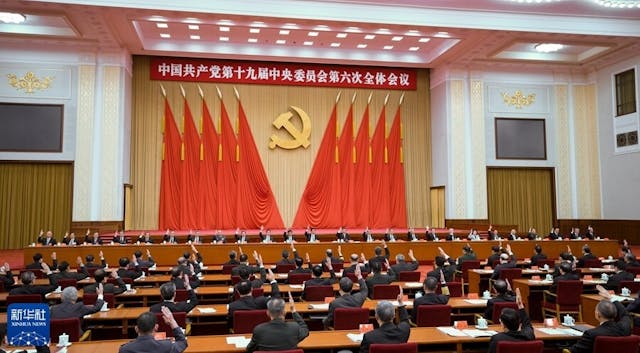
為明年中共召開十二大鋪路
總括而言,2021年中共的「歷史決議」,總結了中共過去的奮鬥歷程和取得的成就,使黨的現任領導人及其政策措施具認受性,同時勾勒了中共未來政策方向的基調。
《決議》對香港和澳門的論述具有重大的政治和歷史意義,強調了貫徹行穩致遠的原則至關重要。至於對台灣問題的論述,在政治上措詞是溫和的,與北京一直在處理對台灣的事務一致。《決議》明顯是為明年的中共十二大鋪路。在此期間,不僅中共領導層會成為媒體關注的焦點,也代表了新中國政治歷史上的又一次重大轉折。
A Historical Resolution with Implications for Hong Kong and Macau
The third historical resolution approved by the Communist Party of China (CPC) during its 19thCentral Committee’s Sixth Plenary Session in Beijing from November 8 to 10 has significant political implications for Hong Kong and Macau. For the first time in the history of the resolutions approved by the CPC, Hong Kong and Macau are not only mentioned explicitly but also emphasized in the implementation of the “one country, two systems” toward the direction of stable governance, especially in the case of the Hong Kong Special Administrative Region (HKSAR).
The historical resolution, which was passed by 197 members of the Central Committee and its 151 supplementary members together with the presence of the members of the Standing Committee of the Central Discipline Inspection Committee, representatives from the grassroots level and academic experts, is the third one in the history of the CPC following the 1945 and 1981 CPC Central Committee’s resolutions. The 1945 resolution affirmed the importance of the Sinification of Marxism in the People’s Republic of China (PRC), while the 1981 resolution affirmed the leadership and core positions of Mao Zedong and Deng Xiaoping in the history of China.
The 2021 CPC resolution is historically and politically significant in several aspects. First and foremost, it came up with a detailed delineation of the four historical period of the CPC and its achievements. Specifically, the first period was the new democratic revolution during which the CPC was anti-imperialistic, anti-feudalistic, anti-bureaucratic, and striving for national independence, liberation as well as establishing the “basic social conditions” of “the realization of the Chinese national renaissance (Wen Wei Po, November 12, 2021).” The second period was the socialist revolutionary construction during which the Mao Zedong thought represented the “creative application and development” of Marxism-Leninism. In other words, the Sinification of Marxism was “the first historical leap” in China. The third period was the reform opening and modernization during which Deng Xiaoping, Jiang Zemin, Hu Jintao as the CPC leaders “liberated and developed the social productive forces, rendered the people escape from poverty, made them get rich as soon as possible, and provided the material conditions for the realization of the Chinese national renaissance and the rapid development of the systemic vitality and guarantee.” The fourth period is the new era of the Chinese style of socialism during which Xi Jinping “as the core representative of the CPC persists in the convergence between the basic principles of Marxism and the Chinese practical circumstances.” Moreover, the Chinese style of socialism during the Xi Jinping era is entrenched, realizing “a new leap in the Sinification of Marxism” and making the people self-confident, self-strengthening and innovative.
(211111) — BEIJING, Nov. 11, 2021 (Xinhua) — Xi Jinping, general secretary of the Communist Party of China (CPC) Central Committee, makes an important speech at the sixth plenary session of the 19th CPC Central Committee in Beijing, capital of China. The session was held in Beijing from Nov. 8 to 11. (Xinhua/Ju Peng)
Ideologically speaking, the 2021 CPC resolution sums up the historical achievements of the Party and legitimizes the historical status and position of the key CPC leaders, ranging from Mao Zedong to Deng Xiaoping, from Jiang Zemin to Hu Jintao, and from Xi Jinping currently onwards. The wordings and tone of the CPC resolution are laying the political underpinning of the 20thNational Party Congress in 2022, when the CPC will enter its second 100thanniversary and continue to lead the PRC toward the Chinese national renaissance. In short, the 2021 CPC resolution reviewed the past contributions, establishes the legitimacy of the present leadership, and paves the way for the future directions and leadership of the CPC from 2022 onwards.
Another political significance of the 2021 CPC resolution is to affirm the thirteen contributions of the Party since the 18thNational Party Congress in November 2012: (1) the persistence of the CPC’s “comprehensive leadership,” (2) the serious management of the Party, (3) the balanced and coordinated development of the Chinese economy, (4) the deepening of reform and opening processes, (5) the development and institutionalization of the socialist political system, (6) the emphasis on national governance in accordance with the law, (7) the stress on cultural and ideological construction, (8) the improvement of the people’s livelihood and social governance, (9) the construction of ecological civilization, (10) the consolidation of national defense and the military, (11) the protection of national security, (12) the persistence in the implementation of “one country, two systems” and the promotion of national reunification, and (13) the promotion of “great power diplomacy” with Chinese characteristics.
(211111) — BEIJING, Nov. 11, 2021 (Xinhua) — Xi Jinping, Li Keqiang, Li Zhanshu, Wang Yang, Wang Huning, Zhao Leji and Han Zheng attend the sixth plenary session of the 19th Communist Party of China Central Committee in Beijing, capital of China. The session was held in Beijing from Nov. 8 to 11. (Xinhua/Li Tao)
Again, the affirmation of the CPC’s tremendous contributions to China’s political, social, economic, cultural, military, national security and diplomatic developments sets the tone for its future directions. The 2021 CPC resolution can be seen as a landmark one not only legitimizing the Party and its leaders, but also reaffirming its policy directions and achievements, especially the leadership of the CPC in all aspects of life in the mainland and in China’s international status and foreign policy. Diplomatically, the 2021 CPC resolution states that while China’s “great power diplomacy” is to be fully promoted, the construction of “a common destiny for the human mankind” remains “a clear and fresh flag” representing how China is carving out a new path in the global world order, how the PRC “turns crises to opportunities,” and how China is exerting and increasing its international influences.
Objectively speaking, based on the communique of 6th plenary session of 19th CPC Central Committee, the tone of the CPC resolution on China’s foreign policy is to lay out an image of a peaceful China. However, under the circumstances in which the so-called “China threat” has been perpetuated by some people in various countries in the world, the socialist mission of creating “a common destiny for the human mankind” will by no means be an easy path. It will likely be filled with suspicions from some foreign countries, politicians and critics hostile to the PRC.
The most important section related to Hong Kong and Macau is how the CPC resolution discusses the two special administrative regions – a section that could not be seen in the 1945 and 1981 CPC resolutions. The 2021 resolution states that “the Party center adopts a serious of measures to tackle the root problems, insisting on the need to implement ‘patriots ruling Hong Kong’ and ‘patriots ruling Macau,’ establishing a firm foundation of governing Hong Kong and Macau, and promoting Hong Kong’s conditions from chaos to stable governance as an important watershed.”
(211111) — BEIJING, Nov. 11, 2021 (Xinhua) — The Political Bureau of the Communist Party of China (CPC) Central Committee presides over the sixth plenary session of the 19th CPC Central Committee in Beijing, capital of China. The session was held in Beijing from Nov. 8 to 11. (Xinhua/Xie Huanchi)
Clearly, the political developments of Hong Kong in 2019 undermined the national security of the PRC. As such, the promulgation of the national security law for Hong Kong in late June 2020 and its implementation aim at restoring “stable governance” from political and social chaos. Similarly, Macau must follow the same principle of stable governance, although Macau was far more politically and social stable than Hong Kong in the past decade.
On the question of Taiwan, the 2021 CPC resolution states that it insists on the principles of one China and the 1992 consensus, that it is “firmly against the separatist action of ‘Taiwan independence,’ that it is “firmly against the intervention of external forces,” and that it is “firmly grasping the leading right and initiatives of cross-Strait relations.”
It remains to be observed how the PRC will “grasp the leading right and initiatives of cross-Strait relations,” but the tone and the policy directions toward Taiwan remain consistent with what Beijing has announced in public in the recent years. Objectively speaking, the wordings on the question of Taiwan appear to be politically moderate.
In short, the 2021 CPC resolution delineates the roadmap and achievements of the Party in the past, legitimizes the Party’s leadership and policy measure at the present, and delineates the tone and the policy directions of the Party in the future. The sentences on Hong Kong and Macau are politically and historically significant, emphasizing the paramount importance of implementing the principle of maintaining stable governance. The sentences about Taiwan are politically moderate and consistent with what Beijing has been dealing with Taipei. The 2021 CPC resolution is clearly paving the way for the Party Congress in the next year during which its leadership will certainly not only become the centre of media spotlight but also represent another watershed in the political history of the PRC.
原刊於澳門新聞通訊社(MNA)網站,本社獲作者授權轉載。





